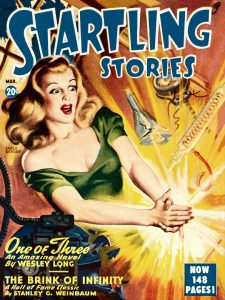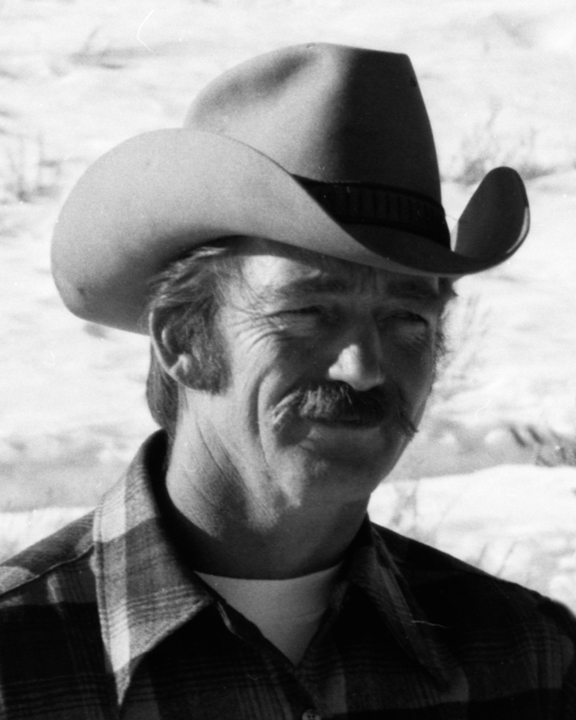 Every culture has stories. I don’t mean the entertaining fictions of story books or novels or other popular entertainment. I mean this other kind, something out in plain sight, but also sort of hidden.
Every culture has stories. I don’t mean the entertaining fictions of story books or novels or other popular entertainment. I mean this other kind, something out in plain sight, but also sort of hidden.
Stories about how things fit together. Stories about relationships, about the duties children owe to parents, and parents to children. Stories about how man and woman relate, and the ways to create family. Stories about the regard each person owes to neighbors. Stories about how to do everyday things, and how to handle the unexpected. Stories about social currents, and current events. Stories about strangers, and how they should be viewed and treated. Stories about intertribal war and fighting. Stories about the mishaps of life, and how to deal with them. Stories about death and how it takes us. Stories about babies, and the renewal of life. Stories about vast forces that can deliver a fortune one day and disaster the next.
You may not know any of this, and might even be under the impression that you aren’t affected by story-making in and around your life. The stories don’t care. They’re out there whether we believe in them or not, all the time, and you and I both are subject to them.
“Stories” as a subject is a funny one, in that … well, we’re so used to living our lives according to these stories, using them to guide our thinking and daily actions, that we’re largely unaware it’s happening. If we do stumble across the idea one day, we dismiss it almost instantly. Me? Subject to stories? No, I’m a 100-percent self-willed rational being!
Big Man, Little Man
I’ll tell you about one that I saw happening, that sort of opened my eyes to the idea.
I worked for a newspaper for 8 years, and it was a fairly illuminating experience in a number of ways. I had an article come across my desk one night, something written by one of our local reporters about a tragic event that happened in a nearby town. At a junior ice hockey game, two attending fathers got into a verbal confrontation. Might have been over a play, a referee call, I don’t remember.
I do distinctly remember one of the hockey dads was a rather large man, the other was more my size – shrimpy. The confrontation included these details: The instigator of the confrontation was almost entirely the little guy. We had a saying in Texas where I grew up – “You’re about to let your eagle beak overload your hummingbird ass.” – something that fits this situation to a tee. The little guy had a mouth on him like a dock worker, and he verbally flayed the big guy, goading him until, eventually, the big guy popped him a good one with his fist.
The little guy went down, hit his head on the concrete floor, and died.
Of course any event like that has follow-up details that go into following articles. There was the arrest, the arraignment, quotes from both families on what they were going through. But the follow-up stories said nothing at all about the little guy goading the big guy. They were written so that the factually-detailed account faded, and a STORY took its place.
The STORY was this: Big man hits little man and kills him, without provocation. The half-hidden narrative developed over a period of weeks, until it was eventually something like “large, violent bully hits peaceful inoffensive little nebbish and kills him.”
Let me pause a minute and toss something at you. You might find yourself even now silently saying, “Well, whatever the little guy did or said, he didn’t deserve to DIE for it.”
And yes, yes, you’d be right. I’d never say he did. But in the heat of the moment, I think you can imagine a little Napoleon-complex guy goading another person – even a big, gentle man – into such heated anger that one little punch might seem like the thing to do. Certainly if he goaded and ridiculed a woman like that in public, we’d all cheer if she finally hauled off and slapped him. If he did it to a cop, most of us would understand if the cop took him down and arrested him.
Besides which, the dying was a wholly unexpected end to the confrontation, something nobody, including the shocked and mortified big guy, could have foreseen.
I lost interest in the sequence of events midway through the thing, but I imagine that STORY, “large, violent bully hits peaceful inoffensive little nebbish and kills him” followed the big guy into the courtroom and weighed heavily in his eventual fate.
The thing I’m saying is that, in this case, what got out to the newspaper’s readership wasn’t the simple facts of the case, it was a STORY. A comfortable, familiar narrative that included certain facts, left others out with a sort of weird deliberateness, and delivered a satisfying, and even expected, conclusion.
I’m often surprised at how often I find myself buying into stories like this. I’m always a little bit disturbed when I realize that I’m doing it, but I’m VERY disturbed when I see that everybody else is doing it too, no questions or doubts expressed. What could a thing like that mean? What is the effect on the society in which it takes place?
Uncle Joe
I’m take a detour for a second so I can make a slightly different point: I had an uncle who lived with my family for a year or two when I was in junior high. He had some serious health problems that included MS and diabetes, so he was pretty much of a mess physically. He also sometimes flew into rages for no good reason. From this end of my life history, all of that is understandable, but at the time, the focus of those rages was often me. He was insulting, goading, verbally abusive to a 14-year-old, 4-foot-something tall, high-strung, sensitive kid. He was, in short, an asshole. A bully.
It took me years and years, long after Uncle Joe was dead, to formulate a conclusion about this sort of thing. But the conclusion was: Handicapped people can be assholes. They can be bullies. Verbally and emotionally, they can be the aggressors to people who are strong and healthy, but who have no recourse but to sit and take it.
Yet this flies in the face of the STORY we have about handicapped people: Because we are all so much bigger and stronger and healthier, we have to give handicapped people special leeway, special help, overlooking whatever little inconveniences they might visit upon us.
Out in the real world, I’m fully on board with the idea of helping handicapped people make their way in the world. But I’m also cognizant of this allied issue – that politeness is something EVERYBODY owes his fellow man. I know that I myself have a certain amount of independent pride, and I imagine everyone around me feels the same way. Even in the face of accommodating the needs of the handicapped, nobody deserves abuse.
If you think about it, that sort of “so far and no farther” reaction is an honest one, a reaction that treats the handicapped person not as a pitiful permanent victim, but as a PERSON. An equal, at least in the vein of recognizing each other as individuals from whom is expected certain bare minimums of respect.
I suspect most of us learn this lesson late, if at all, and when the STORY of “handicapped person” comes into our lives, react with predictable generosity and understanding, even sometimes to the point of taking undeserved crap.
Stories of the Downtrodden
So the point is, STORIES – even those that parallel deeply held humanitarian sentiments – can vary from the facts of any specific case. They can be false.
We have a STORY about Jews. “Jews are the downtrodden, the once-and-forever victims of the Holocaust, and the world owes them generous special treatment to make up for that historic horror.” According to this story, Jews could never be the aggressors. They are an inoffensive people give to study and thought, and know nothing of the arts of fighting and killing. All they want is to be left alone to raise their families, to quietly go about their lives and live in peace.
We have a STORY about race. Part of that story is that there are BLACK PEOPLE and WHITE PEOPLE, and the WHITE PEOPLE are the aggressive subjugators of the BLACK PEOPLE. The BLACK PEOPLE have been held down for too long by the WHITE PEOPLE, and now deserve a certain amount of generous accommodation as they try to bootstrap themselves back up from poverty and slavery.
WHITE PEOPLE, meanwhile, are the permanently advantaged descendants of slave masters, and even today, bend themselves to keeping down the BLACK PEOPLE. Every WHITE PERSON enjoys vast advantages over every BLACK PERSON, living in the ease and the comfort of permanent privilege.
At the same time, some of us have this different STORY about black people, that they are lazy, shiftless social parasites, drug addicts and sex fiends who have baby after baby so they can get more and more welfare.
From the modern feminist camp, we have a STORY about gender relations. MEN are the sole source of problems for WOMEN, with every MAN a rapist barely held in check, every WOMAN a helpless victim of never-ending abuse and sexual harassment. Furthermore, though we live in a fairly rich country, and enjoy huge material and social advantages over people in other countries, this is RAPE CULTURE, and every woman is under constant threat of being thrown to the ground and brutalized. Meanwhile, no MAN is disadvantaged in relation to WOMEN, and the idea there is any need for a movement to establish equality for MEN is laughable. Rather than equality-ism, the only thing we need is feminism.
Understand that all of these STORIES may have elements of either truth or falsehood, or both, in them. In any particular case, the story may be wholly true. But also, in any specific case, the story may be completely false. It may be somewhere in between.
Those of us watching the events in Israel at the moment, where Israelis are bombing Palestinian cities and killing civilians, including innocent-bystander women and children, have certain evidence that the STORY of the inoffensive, victimized Jew, may not be entirely reliable.
Those of us watching the events in Ferguson, Missouri, where a young man was shot and killed by a policeman, are being treated to the STORY of an unarmed young black man brutally killed by an out-of-control cop, for no reason at all. Initially I myself leaned toward accepting that interpretation. Yet as facts of the events become more available, it turns out the situation is slightly more complex than the first-presented STORY, and I feel much less certain.
The Coloring of Thought
The point of all this is that, for most of us, some large part of how we relate to the world around us is through the filter of these stories. They give us ready ways to interpret events as they happen around us, but they also put us at a powerful disadvantage if we aspire to be independent rational beings who live our lives in close accord with reality.
If you live your life by stories and never pull back the curtain to see what lies behind them, you’re a sort of unwitting servant of the stories. See that word, “unwitting”? UN-WIT-ting. You’re NOT THINKING. Instead, you’re … following along. Reacting. Reacting AUTOMATICALLY in certain ways and not others. Ways that have unintended consequences for you and the society we all live in, but also ways that can be predicted and used by people who understand how all this works, and who consciously and deliberately create some of these stories.
For instance, the STORY that George W. Bush was a great president who kept us safe, who never made a mistake, who to this day is not responsible for any bad thing that happened during the post-Sept. 11 era. Or by contrast, the STORY that Barack Obama is a secret Muslim, a socialist and an enemy of America, out to destroy everything good. Or the related STORY that the people believing this are not racists, nothing like racists, and have good reasons to want to impeach this coincidentally-BLACK president. Believe it: These stories were deliberately created to build and maintain political power, and to avoid certain unpleasant consequences of the truth. Whatever side you happen to be on, automatically buying into the STORY of your side might make you feel good, but is not the most useful life-strategy. Unpleasant facts, things you don’t want to believe in, can still be facts.
The worst part of all of this is, if stories are all that informs your thinking, you are a puppet – not to another person – but to something that isn’t even alive and conscious. You’re being run by a THING.
This is not something you can tolerate if you aspire to the status of a reasoning being.
In a way that modern U.S. culture decidedly does not, I’d like Beta Culture to understand that these stories exist, and to have a permanent mechanism for recognizing and revealing them for public consideration. Every Beta adult could more carefully study those stories that interested them, hopefully to make enlightened, independent, rational conclusions about the facts of each case.
 I was in a position to witness a young woman asking people for a cigarette at a highway rest stop a few days back. “Could you give me a cigarette? No?? Oh, please, please, please! It’s just one cigarette, and I really NEED it. It’s just one lousy cigarette!”
I was in a position to witness a young woman asking people for a cigarette at a highway rest stop a few days back. “Could you give me a cigarette? No?? Oh, please, please, please! It’s just one cigarette, and I really NEED it. It’s just one lousy cigarette!”









